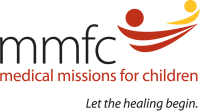Antigua, Guatemala, 8 Enero (January) 2017
They come from far away, so many of the patients and their families; they are weary and perhaps afraid. They are in line and waiting; for some, perhaps an adventure, for others, undoubtedly a hardship. A few of them we have seen before, but so many this year are first timers. The team screens baby after baby, a few with cleft lip only, likely requiring a single surgery. Many more have complete cleft lip and cleft palate, or microtia (congenital absence of the outer ear), so their surgical journey is just beginning. All of the children are weighed and examined, parents questioned (sometimes requiring multiple translations), team members consulted (surgery, cardiology, anesthesia, primary care nursing, dentistry and speech therapy). Fortunately, almost no one is turned away. The schedule is set; four operating rooms will work non-stop this week, as will the PACU (recovery). The dentists and therapist will have dozens of children to see, procedures to complete and instructions to give. It will be a busy 5 days.
9–13 Enero (January) 2017
Every day is both the same and very different; the patients are brought into pre-op by the very capable and efficient staff of Hermano Perdro hospital. Often, the children are crying from hunger, fear or sheer boredom. The mothers save their tears until one of the MMFC anesthesiology professionals comes to bring their child in to surgery. This is the when the cross cultural barriers break down; a hug, an arm squeeze or a simple “esta bien” (“it’s OK”) coming from a stranger from another land reveals how we are much more alike than different.
What the parents don’t see is the incredible skill of that same anesthesiologist/nurse anesthetist prepping that child for surgery and the finesse of the surgeons’ work to undo the hand that this family has been dealt. They don’t see the efficiency of the operating room nurses to have everything sterile and ready, nor the details in caring for and compassion with which the PACU nurses care while this child is recovering from all of the above. They don’t see the post- op orders written by the MMFC nurse practitioner, nor can they likely absorb the information given to them by the speech therapist until much later. Post-operatively, all this parent sees is that their child is alive and well (albeit not very happy), and that the professionals are smiling. And that their baby’s face looks more “normal” somehow under those steri –strips. And that everything is going to be OK, going to be better. Life is good.

